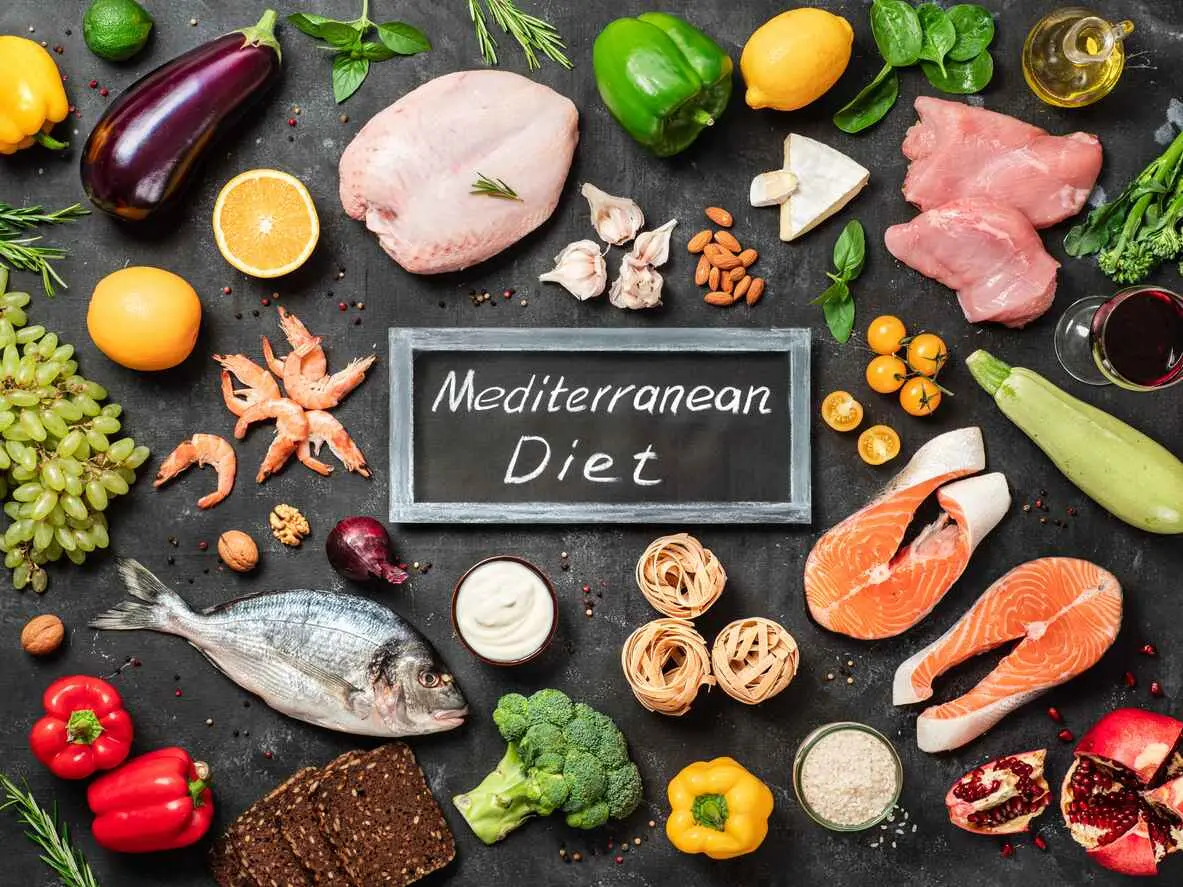Following A Mediterranean Diet May Help Increase The Chances Of Successful IVF
- IVF is growing in popularity, but various factors can influence its success.
- Research has shown that certain supplements could improve IVF outcomes.
- A Mediterranean diet may also enhance the likelihood of a successful IVF procedure.
- A recent analysis of multiple studies highlighted these findings.
Ongoing research is exploring various fertility treatments, including in vitro fertilisation (IVF). It's unclear how specific diets or over-the-counter supplements might impact the likelihood of a successful IVF leading to a healthy pregnancy.
A recent study published in Reproductive Biomedicine Online (RBMO) examined 27 research papers on how different dietary approaches affected IVF outcomes.
The review showed that a Mediterranean diet could boost the chances of a successful IVF. Additionally, supplements like DHEA, COQ-10, melatonin, myo-inositol, and omega-3 fatty acids improve IVF success in certain situations.
However, more research is needed to fully understand how these supplements and dietary changes contribute to successful IVF outcomes.
IVF Success Depends On Many Factors
In vitro fertilisation (IVF) is a process where an egg is fertilised outside the body and then implanted into the uterus, commonly used by couples facing infertility issues. The ultimate goal is a healthy pregnancy and the birth of a baby.
The success of IVF depends on various factors. For instance, women with endometriosis may have a lower chance of successful IVF, while those under 35 tend to have better outcomes compared to older women.
IVF is a complex process involving multiple steps, including ovarian reserve, ovarian stimulation, fertilisation, embryo development, and implantation. Patients seeking IVF often already face fertility challenges, which can make achieving success even more challenging.
Considering the high cost of IVF, optimising each step of the process is crucial to prevent any failures. This is where supplements can play a role in enhancing fertility and IVF outcomes.
The recent review focused on dietary interventions that women can undertake without a prescription from a clinician.
It's worth noting that diet can also impact fertility. Diets high in trans fats, refined carbohydrates, and added sugars may reduce female fertility. Therefore, studying how diet influences IVF results is an essential area of research regarding fertility.
Which Supplements May Help IVF Success?
This review analysed 27 studies conducted between January 2015 and May 2023, focusing on the impact of various nutritional supplements on IVF outcomes. It also explored the potential benefits of dietary restrictions and the Mediterranean diet.
The review specifically concentrated on female participants in most of its analyses, excluding studies that didn't meet specific criteria.
The findings suggested that some supplements may positively impact IVF outcomes, while the effects of others remain uncertain.
For instance, supplements like DHEA and COQ-10 could potentially help women undergoing ovarian stimulation, which aims to increase egg production for retrieval and fertilisation outside the body.
The review also indicated that omega-3 free fatty acids and melatonin supplements might offer some benefits in IVF outcomes. However, further research is required to determine the most suitable patients for melatonin and the appropriate dosage.
Women with polycystic ovary syndrome, a condition linked to infertility, might find myoinositol supplements beneficial, but additional research is necessary to establish the correct dosing guidelines.
Lastly, the review proposed that adopting a Mediterranean diet could enhance the success of IVF. This dietary approach emphasises:
- Consuming plenty of vegetables, legumes, and fruits.
- Choosing whole grains like whole wheat bread and pasta over white alternatives.
- Increasing the consumption of fish and preferring poultry over red meat.
- Incorporating healthy plant-based fats from olive oil, avocados, nuts, and seeds.
- Limiting the intake of highly processed foods.
The review suggests that a Mediterranean diet may offer better IVF outcomes than a traditional high-fat, high-carbohydrate Western diet. However, further research is needed to fully understand the effectiveness of these dietary and supplement interventions in IVF.
Should I Follow A Mediterranean Diet While On IVF?
This review has some limitations worth noting. Firstly, it only considered studies from specific databases and those written in English that met specific criteria. Future research should include a more extensive range of studies for a comprehensive analysis.
The review lacked a precise definition for "poor ovarian response," making applying the findings in clinical practice challenging.
Since the review examined previously conducted studies, it's essential to acknowledge that each of these studies had limitations, which may affect the reliability and applicability of the overall findings. For instance, one study supporting the benefits of the Mediterranean diet included both men and women, making it unclear which gender benefited more.
Furthermore, the review was primarily conducted by one person, which introduces the potential for errors in data analysis.
It's important to note that it may take time for the findings from this review to influence clinical practices. Individuals considering IVF can consult with specialists about their nutrition and supplement use to determine the most suitable approach for their unique situation.
In future research, it will be essential to confirm these findings, establish the actual treatment effects, and determine the appropriate supplement dosage and the specific subgroups of patients who would benefit from such treatments.
Mobi Doctor offers valuable assistance, providing a platform to seek consultations and medical advice.






